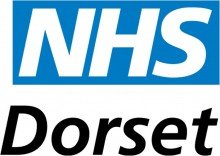
Dorset Eye has received the following report that identifies how the Dorset County Hospital Foundation Trust has recommended that all pathology services should be put out to tender. This has raised many questions and concerns. From offloading vital services in to the profit making sector to the lack of consultation with local communities. There are of course many more but yet again local people are ignored as decisions about their health care (amongst many others) is decided by a small closed group of people. This is a decision in which the community should be invited to listen to the arguments and be involved in the final decision. This way the people who are affected can be empowered and also be accountable for any outcomes.
Therefore we call upon the local foundation trusts to make every effort to include local people in the decision making process from a much earlier stage.
Dorset County Hospital Foundation Trust Report
1.1 The purpose of this paper is to brief staff on particular discussions that occurred at the meeting of the Trust Board in June 2013. These discussions related to the future of pathology services at Dorset County Hospital NHS Foundation Trust (DCH).
1.2 The outcome of these Board discussions will not have any immediate effect on the provision of the Hospital’s pathology services. However, it is considered appropriate to brief staff at this early stage, in order to assist in alleviating any concerns and to outline next steps.
1.3 For the avoidance of doubt, those services included under the umbrella of pathology services are Histology, Cytology, Microbiology, Hospital Transfusion Laboratory, Haematology and Biochemistry.
2. BACKGROUND
2.1 The 2008 Carter Review recommended the provision of pathology services should move to a networked model where large volumes of tests are analysed in larger laboratories serving a number of trusts with smaller laboratories retained in hospitals for emergency work only. In light of this recommendation, DCH has been reviewing the provision of pathology services with other trusts across Dorset to determine if a network could be created to service DCH, The Royal Bournemouth and Christchurch NHS FT, Poole Hospital NHS FT and Salisbury Hospital NHS FT. However, limited progress has been made.
2.2 An essential part of delivering excellent services is the ability to maintain a high quality, efficient pathology function. Whilst it is recognised that our services work very hard to maintain their compliance with accreditation and quality standards, recent inspections from both accreditation bodies (CPA and MHRA) and external reviews (RCPath and peer assessment) have highlighted areas of concern. There have also been underlying issues relating to the recruitment of appropriate staff to posts. All of these issues highlight the difficulty of running high quality pathology services within a small district general hospital setting.
2.3 There are also significant financial challenges placed upon the NHS at present and to respond to these the Trust is reviewing the delivery model of services to identify where quality and efficiencies can be improved. With respect to pathology services, three options have been identified, namely:
continue with current model;
work as a Dorset-wide network;
explore the potential to engage an alternative provider.
3. OPTIONS
3.1 The Trust Board considered the strategic and economic implications of the three options in some detail. A summary is as follows:
Option One – Continue with Current Model
3.2 This option would maintain the current arrangements associated with the provision of all pathology services from within DCH. This would provide continuity of current on-site services and have a limited impact on staff. However, continuing with the current model presents risks associated with the ability to maximise the quality of services provided by the Hospital, and the prospect of other competitors positioning themselves to access community work. This would lead to reduced income and further financial risks and limit our ability to deliver any significant future savings.
Option Two – Work as a Dorset-wide Network
3.3 This option would involve the establishment of a network model within Dorset. Such a model would have significant benefits and keeping a Dorset network would reduce any impact on the local workforce. However, to date this work has not proceeded to any great extent and it will take a good deal of time for the Dorset trusts to identify and implement a suitable network model. This option will also require significant capital investment from the Trust, which may not be affordable. In directly competing with larger providers, a Dorset network is unlikely to be able to achieve sufficient scale to be effective.
Option Three – Explore the Potential to Engage an Alternative Provider
3.4 This option would effectively ‘test the market’ to explore the opportunity and feasibility to outsource DCH pathology services to an alternative provider. South West Pathology Services has established such a centralised laboratory in Taunton and this has the capacity to accommodate the majority of work across the South West. Trusts using this facility for the provision of their pathology services report high levels of satisfaction, with respect to quality and efficiency. Although, at this early stage, the value of any financial savings cannot be confirmed, outsourcing is likely to be highly cost-effective for the Trust. No service delivery risks have been identified, but inevitably there will be an impact on DCH pathology staff.
4. NEXT STEPS
4.1 The Board approved the recommendation that option three is taken forward. Therefore, preparations will be made to undertake a competitive tendering process, with the aim of identifying a potential alternative provider of pathology services. The outcome of this tendering process will inform final decision-making.
5. POTENTIAL IMPLICATIONS FOR DCH STAFF
5.1 The Board fully recognises that its decision will cause uncertainty for staff, particularly during the period in which the tendering process is to be conducted. Until such time the process is completed it is not possible to confirm what the final outcome will be and, indeed, whether DCH pathology services will transfer to another provider, and if so under what model of provision.
5.2 Using the South West Pathology Service model as an example, if this model was adopted by DCH the majority of current activity would be undertaken in a centralised laboratory and the Hospital laboratory would be downsized to be an essential services laboratory (ESL). The ESL would service the acute needs of the Hospital and perform otherDCH Pathology Services/Staff Brief/Jul 13 3
essential testing, including some specialist tests. The service would be consultant led and thus the existing consultant pathologists would remain employed by the Trust (and therefore the NHS).
5.3 The employment of the remainder of the Hospital’s pathology staff would transfer to the new provider under the Transfer of Undertakings (Protection of Employment) Regulations, otherwise known as TUPE. The provisions of TUPE afford a high level of protection to staff by prohibiting dismissals leading up to and during a transfer, preserving terms and conditions of employment after the transfer, and providing the right to be informed and consulted about the transfer arrangements.
6. TIMESCALE
6.1 A thorough tendering process will be initiated in the near future and is expected to take around twelve months to complete. Therefore, it is unlikely that the Trust Board will be in a position to make a final decision before September 2014.
7. COMMUNICATION AND ENGAGEMENT
7.1 Staff will be kept informed of progress via their divisional management team, department managers and clinical directors. Further briefing sessions will be arranged when further information becomes available. Other channels of communication should remain open between staff and managers, so that any queries or concerns are answered quickly.
7.2 Although the need for a formal consultation process will not be confirmed until it is known whether a TUPE transfer is necessary, the relevant union representatives will be appraised of this situation and updated, as required.
7.3 Should the outcome of the tendering process be that the pathology service is to transfer to another provider, the implementation of such a significant service change will require strong project management and governance arrangements. A project board and team will be established, which will include staff representatives from all affected areas. Effective staff engagement will be a key success factor in any such transfer.
8. SUMMARY
8.1 In the interests of safeguarding effective, efficient and sustainable future pathology services that will deliver excellent quality for our patients, the Trust Board has decided to commission a tendering process. The aim of this process is to explore the potential to outsource DCH pathology services to another provider. Tendering will take up to one year to complete, following which a final decision will be taken. Should the services move to a new provider, an essential services laboratory would remain at DCH and the employment of all non-consultant staff would transfer under established protection arrangements.
8.2 Formal consultation (if required) will be undertaken at the appropriate time, once a final decision is made. In the interim, staff will be kept informed of developments.
Director of Workforce and HR











